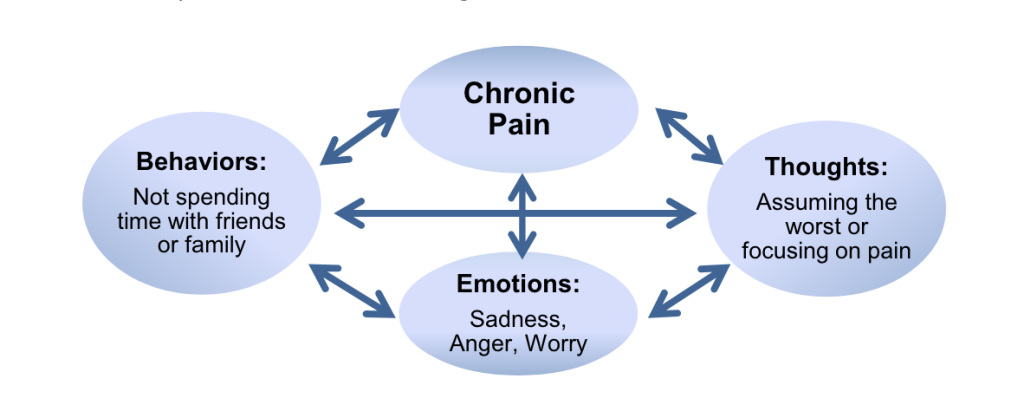
Over 3.6 million Australians are affected by chronic pain. Yet, many people do not talk about it, often due to the stigma, isolation and mental health challenges that surround this complex condition.1 Australia’s National Pain Week, from 22 to 28 July 2024, aims to draw attention to those who are living with chronic pain and, in doing so, reduce the social and other barriers related to living with and managing persistent pain.1
Chronic pain is often defined as lasting over three months or beyond the expected healing time after an injury or illness.2,3 Aside from the physical sensation of chronic pain, it can also affect an individual’s mood, sleep and mental health.2 In fact, more than 1 in every 2 Australian adults become anxious or depressed due to their chronic pain.2 Perhaps unsurprisingly, there may be a two-way relationship between mental health disorders and chronic pain as many chronic pain sufferers experience psychological distress, and psychological symptoms may be associated with an increased risk of persistent pain.3 There are strong links between anxiety, depression and chronic physical illness, which is why often chronic pain is managed through psychological approaches, such as Cognitive Behavioural Therapy (CBT) and mindfulness practice.2
Our brain continually receives messages from our body, so when there is an acute injury, our body tells the brain by sending messages to it. Since we need to heal and protect a particular injured body part, our brain will process the messages from the body and then send out a pain signal. Activating the pain signalling system is crucial because it adapts and gradually reduces as the body heals. We don’t need to protect a certain body part anymore. However, people with chronic pain experience pain long after the expected time of healing. Their pain signalling system also often does not adapt, becomes hypersensitive and continues to send out a pain signal, which is now being processed by an oversensitive pain signalling system. Positively, the brain and the pain signalling system can be retrained using psychological therapy to become less responsive or sensitive.

Some people find that psychological therapy such as CBT, which is the best-studied psychological therapy for treating pain, helps to identify the thoughts, feelings and behaviours that reinforce the faulty pain signalling system. CBT can help people modify their emotional and behavioural responses to pain by challenging their thoughts, fears and ability to catastrophise their feelings of pain. By identifying unhelpful thinking and behaviour patterns, people can replace them with more helpful ones. Research has also shown that this approach reduces pain signals and assists chronic pain sufferers in returning to their everyday life activities.
According to Pain Australia, 4 in 5 young adults (aged 20 to 24) with chronic pain report interference in their daily lives, and the rates of depression are four times higher among individuals with chronic pain than those without pain.5 While these stats are alarming, it’s also alarming to understand that most individuals with chronic pain lack access to comprehensive pain services, including mental healthcare, which is often due to cost and geographical constraints, particularly for those who live in rural or remote areas. Furthermore, the stigma surrounding chronic pain and mental health conditions further inhibits people from seeking out care and receiving necessary treatment.6 The good news is that help is available, and in recent years, there has been an increase in the understanding and awareness of chronic pain and its link to mental health issues.
If you’re experiencing chronic pain and it’s affecting your mental health, Teladoc Health’s Mental Health Service provides you with quick and easy access to a team of mental health experts who will conduct an in-depth review of your new or existing mental health issues and condition, all from the comfort of your home.
If you would like to book a consultation but are unsure if you can access Teladoc Health services, submit a form here, and a Member Engagement Coordinator will respond shortly.
References:
1. National Pain Week 2024 #Painchanger – Chronic Pain Australia
2. Chronic pain – about, causes and management | healthdirect
3. Chronic Pain in Australia (Full publication;16Apr2020Edition)(AIHW)
4. The Link Between Chronic Pain and Mental Health | THIS WAY UP
5. Media: National Pain Awareness Week (painaustralia.org.au)
6. What you need to know about pain and mental health in Australia (painaustralia.org.au)